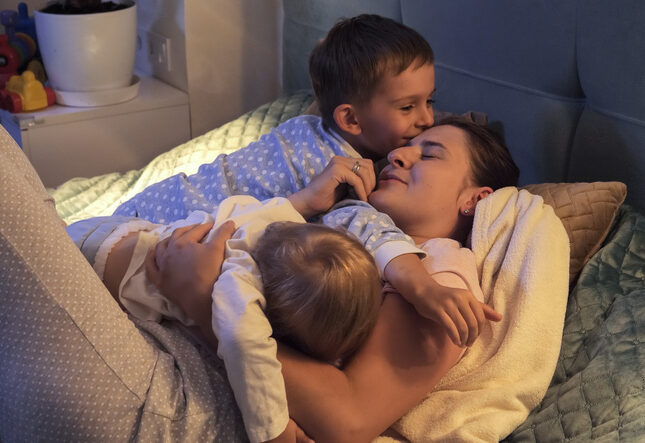Adapting seasons for growth for Year 11 & 12s
November 6, 2024
For Jacque who works as a Supported Playgroup Leader and Group Worker at CatholicCare, she was very familiar working with primary school aged students and their parents. So, when she was faced with the task of running the Seasons for Growth program for Years 11 and 12 girls, it was a new and exciting challenge. As she entered the room on day one of the program, she was met by a group of highly intelligent, insightful girls who gave up their lunch break over eight weeks. “It was an incredible experience,” Jacque says.
Seasons for Growth is a program that strengthens the emotional and mental wellbeing of children and young people who are adapting to experiences of change, loss and grief in their lives. It explores the cyclic nature of grief and is underpinned by William Worden’s model of grieving.
“We start in autumn and then move to winter when we talk about the heaviness of grief,” says Jacque. “Then we move onto spring and finally summer to explore grief’s different stages.”
Jacque explains that she followed the Seasons for Growth adolescent program. “It is designed for Year 7 right through to Year 12,” Jacque says. “But what is happening for adolescents in Year 7 is very different to Years 11 and 12. So we decided to make some additions to the program. We looked at helpful versus unhelpful coping tools. We explored aspects of our lives we can control versus aspects we can’t. We did some cognitive behavioural therapy. So, we were using the program but had the opportunity to bring other things into it.”
The school identified eight Year 11 and 12 students who could really benefit from the program. “Some had experienced the death of a parent or sibling, and others had parents who were separated or divorced,” Jacque says.
For Jacque, it was a privilege to witness the students’ growth over the eight weeks. “To watch them connect emotionally with themselves and each other was so special. As they listened to each other’s stories they realised that they weren’t the only ones with these feelings. Obviously, everyone’s stories were unique, but they also recognised aspects of their grief that were similar.”
Each week the girls were invited to bring in reminders of their experiences, such as a song, a piece of art or some music. “One of the girls whose parents had separated brought in photos from when she was young and living in one home, and more recent photos of the two different homes,” Jacque says. “Other girls brought in songs, and we explored songs that relate to different seasons of their grief. The program offers a really creative way of helping young people express their feelings.”
Over the eight weeks, Jacque recalls watching friendships grow across cliques that might not normally have occurred. “Eight weeks is quite a long program,” Jacque says, “so they spend a lot of time getting to know each other and growing together.”
Jacque says that working with such a receptive group of students was extremely rewarding. “They had to give up their lunch break in order to attend, which for most teenagers is unheard of.” But those eight sacrificed lunch breaks, by all accounts, were well worth it.
For more information about our family and youth services please click here.
More news stories like this one
Thinking outside-the-box to house families in crisis
Housing a family in crisis presents many challenges. Read how two families in Sydney cope after escaping domestic violence.
Read MoreSupport without stigma – the non-clinical model of Dom’s Place
Discover how Dom's Place offers effective homelessness support without stigma, fostering a supportive and non-clinical atmosphere.
Read MoreWe’re empowering and connecting seniors via our seniors ministry collab
Discover the importance of empowering and connecting seniors through parish initiatives that build fellowship and support.
Read More


